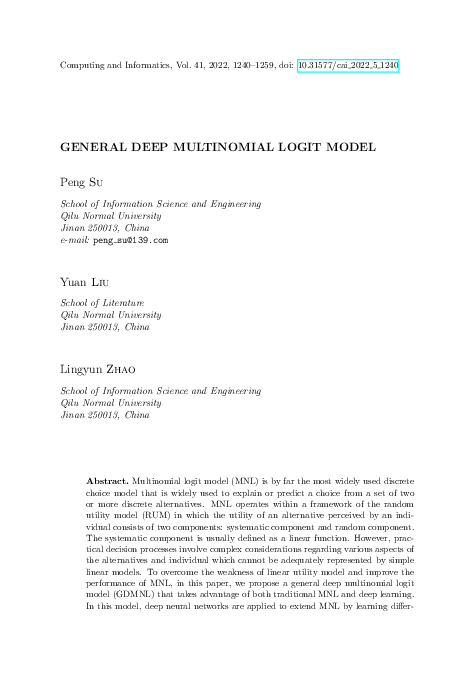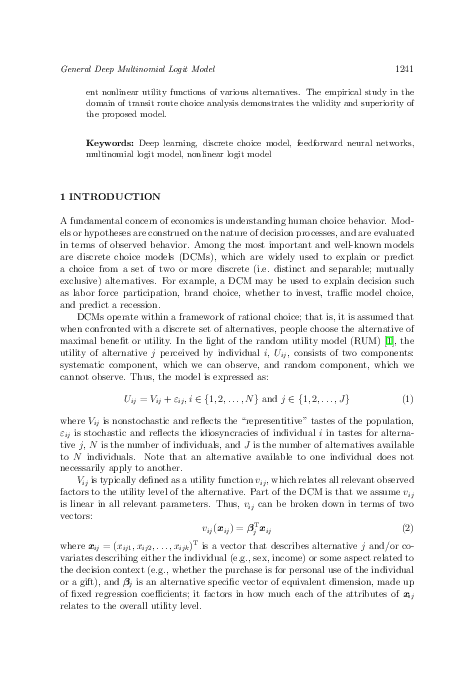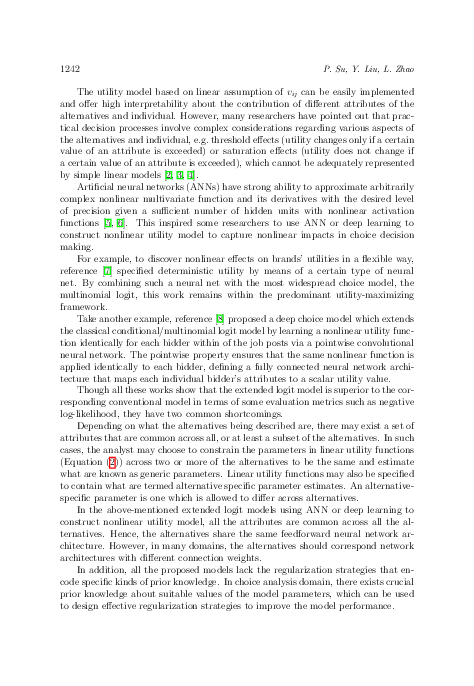General Deep Multinomial Logit Model
keywords: Deep learning, discrete choice model, feedforward neural networks, multinomial logit model, nonlinear logit model
Multinomial logit model (MNL) is by far the most widely used discrete choice model that is widely used to explain or predict a choice from a set of two or more discrete alternatives. MNL operates within a framework of the random utility model (RUM) in which the utility of an alternative perceived by an individual consists of two components: systematic component and random component. The systematic component is usually defined as a linear function. However, practical decision processes involve complex considerations regarding various aspects of the alternatives and individual which cannot be adequately represented by simple linear models. To overcome the weakness of linear utility model and improve the performance of MNL, in this paper, we propose a general deep multinomial logit model (GDMNL) that takes advantage of both traditional MNL and deep learning. In this model, deep neural networks are applied to extend MNL by learning different nonlinear utility functions of various alternatives. The empirical study in the domain of transit route choice analysis demonstrates the validity and superiority of the proposed model.
reference: Vol. 41, 2022, No. 5, pp. 1240–1259


